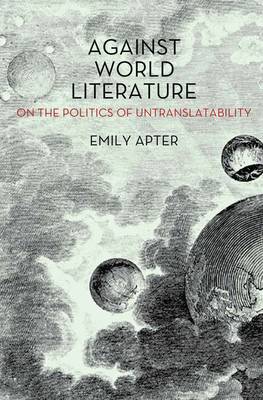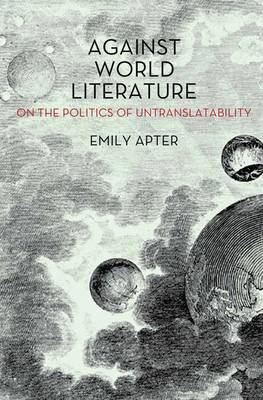
Je cadeautjes zeker op tijd in huis hebben voor de feestdagen? Kom langs in onze winkels en vind het perfecte geschenk!
- Afhalen na 1 uur in een winkel met voorraad
- Gratis thuislevering in België vanaf € 30
- Ruim aanbod met 7 miljoen producten
Je cadeautjes zeker op tijd in huis hebben voor de feestdagen? Kom langs in onze winkels en vind het perfecte geschenk!
- Afhalen na 1 uur in een winkel met voorraad
- Gratis thuislevering in België vanaf € 30
- Ruim aanbod met 7 miljoen producten
Zoeken
€ 32,45
+ 64 punten
Omschrijving
Against World Literature: On the Politics of Untranslatability argues for a rethinking of comparative literature focusing on the problems that emerge when large-scale paradigms of literary studies ignore the politics of the "Untranslatable"--the realm of those words that are continually retranslated, mistranslated, transferred from language to language, or especially resistant to substitution. In the place of "World Literature"--a dominant paradigm in the humanities, one grounded in market-driven notions of readability and universal appeal--Apter proposes a plurality of "world literatures" oriented around philosophical concepts and geopolitical pressure points. The history and theory of the language that constructs World Literature is critically examined with a special focus on Weltliteratur, literary world systems, narrative ecosystems, language borders and checkpoints, theologies of translation, and planetary devolution in a book set to revolutionize the discipline of comparative literature.
Specificaties
Betrokkenen
- Auteur(s):
- Uitgeverij:
Inhoud
- Aantal bladzijden:
- 384
- Taal:
- Engels
Eigenschappen
- Productcode (EAN):
- 9781844679706
- Verschijningsdatum:
- 23/04/2013
- Uitvoering:
- Paperback
- Formaat:
- Trade paperback (VS)
- Afmetingen:
- 155 mm x 234 mm
- Gewicht:
- 612 g

Alleen bij Standaard Boekhandel
+ 64 punten op je klantenkaart van Standaard Boekhandel
Beoordelingen
We publiceren alleen reviews die voldoen aan de voorwaarden voor reviews. Bekijk onze voorwaarden voor reviews.









